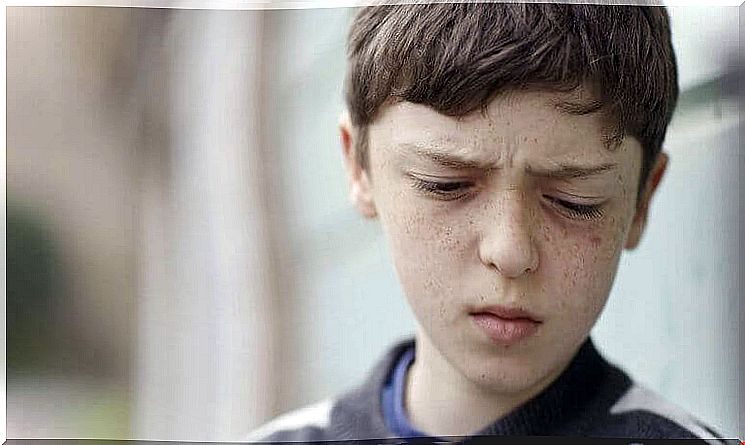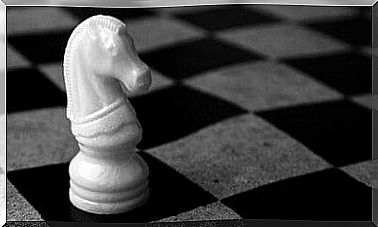Punishment In Education

Punishment is a very common method in our society. Whether it’s taking toys away from a child for misconduct or fining adults for committing offenses. We see punishment as a way to reduce or avoid behaviors that we don’t like. But is punishment in education useful? What are the consequences ? In this article, we will try to answer these questions.
You can still hear a lot of people say the phrase “There are slaps that get lost”. It must be clear that education is a very serious matter and cannot be reduced to concrete experiences or individual opinions. The use of expressions such as the one mentioned above takes us away from the scientific criteria on which educational practices should be based.
To study the usefulness and consequences of punishment in education, we will focus on empirical data. However, it is important to remember that a personal point of view can lead to a totally wrong interpretation of the subject; instead, research data provides us with very useful information about punishment and its educational implications. Go further.

The Principles of Reward and Punishment in Education
Before discussing the usefulness and consequences of punishment in education, it is essential to understand the principle that governs it: why punishing a person would allow us to reduce prohibited behavior? The answer to this question is given to us by BF Skinner, one of the fathers of behaviorism, who made great contributions to the psychology of learning.
Operational conditioning generally indicates that when a behavior is reinforced, it increases its likelihood of recidivism. In other words, when we receive something positive as a result of a certain action, we will tend to do it again in the future.
With punishment, the opposite happens: when behavior is punished, it is less likely to happen again. The evidence in favor of operant conditioning is abundant and the theory has been widely demonstrated (in human and non-human animals).
However, the complexity of learning is very high and does not simply come down to the premises we have mentioned. A key aspect of understanding the effects of reward and punishment on education is its instrumental nature. When we reward or punish, we modify behavior because the subject expects that reward or punishment. That is to say, the subject is animated by an extrinsic motivation.
From extrinsic motivation it follows that the new behavior will continue as long as the punishment or reward is maintained. It is important to understand that operative conditioning is associative learning; the subject will not understand why the behavior is good or bad, he will simply know that certain consequences follow certain behaviors.
The consequences and problems of punishment in education
Now that we know the principles that govern operant conditioning, let’s turn to the usefulness and consequences of punishment in education.
When we educate a person, we do not seek to mold them to our liking, but rather to develop their intellectual potential and their critical vision of society. It is the purpose of education and the postulate that will guide our analysis.

Punishment, while effective in shaping behavior, is a rather poor method of education. The reasons are as follows:
- The modification of behavior is conditioned by the existence of a punishment. As we mentioned above, the driving will only continue as long as the punishment exists. If the punishment goes away, the negative behavior will reappear. This shows us that there is no deep learning about what is right or wrong, but simply associative learning.
- The possible appearance of learned helplessness. If the subject is not presented with alternative behavior along with the punishment, he or she may be unable to find it on his or her own and may become paralyzed. For example, a child who strives for success but fails and is punished for it. This can lead to the child taking the punishment and being unable to act “right”. Developing this attitude can negatively affect your self-esteem.
- Education through violence creates violent people. When the punishments are violent (physical or psychological), they can have fatal consequences for the education of people. Humans learn largely by imitation and immersion in a social context; if our environment resolves problems through violence, we will learn to react in the same way to what happens to us, in addition to the emotional consequences that will occur.
- The association punishes the person and not the behavior. Often, when the subject does not understand why his behavior is bad, he associates the guilt with the person carrying out the punishment. The subject will believe that the punishment is an evil or selfish whim of the subject. At these times, the person will not reduce the frequency of their behavior, but will avoid the person administering the punishment.
As we can see, educating a person is complex and full of nuances. Punishment is a simple and easy solution, but extremely superficial and dangerous on many occasions. Although negative behavior should not go unpunished, values education is more complex.
A good education is governed by a democratic, critical and debate-based style of education. When a child engages in negative behavior, it should be followed by a discussion of why they are wrong, what alternatives exist, and how they can solve the problems they have created.
Education is a very serious matter because it determines a large part of our future life. Thanks to scientific research and the gradual change in our practices, we can move in the right direction.










